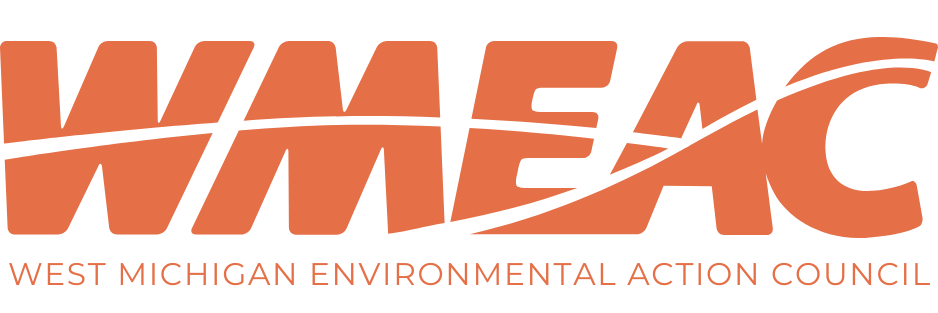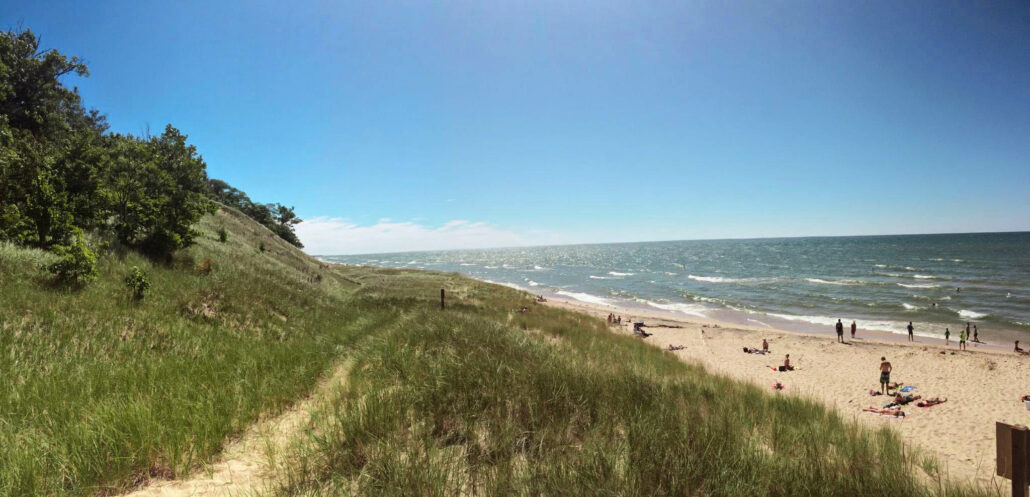By, Sarah Barney, eco-journalist at WMEAC and senior at Denison University
In today’s world, it’s easy to focus on the negative effects of climate change, to see all the long road ahead to making a lasting change. However, it is crucial for the success of the climate movement to take a step back and celebrate what is going right, no matter how small. Here are three people, working with three different climate-related organizations that are actively working to fight for climate justice in West Michigan.
Grand Rapids Climate Action and Grand Rapids Climate Resolution Coalition
Janet Zahn describes herself as a tree hugger, which is evident throughout her life. In the 90s, she connected with WMEAC and was heavily involved in the fight against the use of pesticides. Zahn took a hiatus from working in activism to work in fundraising consulting for nonprofits. She did that for about 16 years before she left this job in December due to the COVID-19 pandemic. This opened time for Zahn to get involved with climate activism once again.
“For years, I have said to myself and anyone who knew me that climate change is the most important thing. We really need to work on this!” she laughed. “I never really saw a place for me to make an impact.”
But Zahn found a place with the Grand Rapids Climate Action (GRCA), a small grassroots nonprofit formed in 2019 by residents from Grand Rapids and surrounding communities. Their goal is to address the climate crisis at a local level. The main goal of the GRCA is, as quoted from their website, to persuade “The Grand Rapids City Commission to pass a resolution declaring a climate emergency and committing to a plan for achieving community-wide carbon neutrality for Grand Rapids by 2030.”
The group quickly realized that to achieve this goal, they can’t do it alone. They decided to form the Grand Rapids Climate Resolution Coalition. The coalition has almost 50 members made up of groups, institutions, businesses, and individuals. A primary goal of the group was to amplify voices of those who aren’t traditionally heard. Zahn was elected to be the co-chair of the coalition by the members, and she enthusiastically agreed.
The Coalition has achieved many successes in its short life, specifically with recruitment. One of Zahn’s favorite memories from the coalition doesn’t directly involve the group, but rather the Climate Mobilization Network. This is a national group that works to declare climate emergencies in communities. In late May, Zahn virtually attended her first meeting with the network on behalf of the coalition. She shared that the coalition (at the time) had 35 members. Her announcement was received with praise, excitement, and most of all support. The network thought the Grand Rapids group was the largest climate-related coalition in the country.
“When you’re in the vacuum of your own little bubble, this is what it is, and it was really great to hear from others that it was impressive to them–that we had gathered support from so many different groups,” Zahn recalled, smiling.
Holland Climate Collaborative
Around 30 miles southeast of Grand Rapids, in the city of Holland resides Shanley Smith. She grew up in Holland, and the environment always had a place in her heart. How could it not when she grew up with the Great Lakes, sand dunes, and forests? She attended Hope College for her undergraduate degree in Creative Writing. With the help of her professors, she found a niche for nature writing and environmentalism.
“I was able to start nurturing my love for environmentalism. Mostly just feeding that through personal lifestyle choices and how I was educating myself,” Smith explains. “But started to get an itch where I was like I know this needs to be bigger than something that’s just happening in my own life.”
Smith got side-tracked by working abroad in Romania. However, she realized that there is only so much she can do for the environment outside of her own community. COVID-19 led Smith back home to Holland, and she started a career in environmentalism. She, like Zahn, began her activism with WMEAC, which led Smith to the Holland Climate Collaborative. The HCC is a grassroots movement that started in 2019. The group is very concerned with scientific predictions of climate change and wants to make Holland a leader in cutting carbon emissions.
HCC’s long-term goal is for Holland to reduce carbon emission by 50 percent each decade. But a lot of their work is community based. They focus on education and being a bridge between the community and city leaders. Members of the HCC attend city council meetings, which can be two or three hours, and relay the information to the community through meetings every other Tuesday.
When asked how they are successful, Smith recalled this specific memory. Some time in the spring of 2021, when she was just an intern for HCC, she worked in a shop in downtown Holland. Smith was working at a desk and a customer called out her name.
“It was one of the city council members. She just took the time to thank me for what I’d been doing and just acknowledged her and her hopes for [HCC] and what we were doing. Just having that thanks and praise from a city council member when at times I wonder if we are talking to them too much or if they are even listening [meant a lot],” says Smith.
For Smith, moments like that indicate the work they are doing matters and is making a difference.
White Lake Area Climate Action Council
Tamara Horne also began her activism career with WMEAC. She joined an environmental book club and she started to think about how we can act as a community to fight climate change. This desire for acting in her community led her to become involved in the White Lake Area Climate Action Council. Their goal is to get the city of Montague and Whitehall to declare a climate emergency. While they are still working with the city of Whitehall to draft a climate resolution, Montague has declared a climate emergency.
Along with working with the city, WLACAC is community centered. Despite having some skeptics, the outlook of the group is optimistic.
“Even empowering people in our group to go somewhere in public and say the words ‘climate change’ is a big deal, because that’s hard for some people. They feel like it’s a political thing but it’s not, it’s a human rights issue,” Horne explains.
But she is seeing a shift in the community. When WLACAC has a booth at the farmer’s market, people used to put a few dollars in the jar and walk by, and this was a big deal for them. Now, Horne has noticed that since WLACAC has started the conversation, more people are willing to talk and ask questions.
Beside farmer’s markets, WLACAC holds meetings for residents to discuss concerns. Since the group began meeting in the middle of the pandemic, they haven’t been able to meet in person until the beginning of June. It was outside in a community garden. The evening was hot and humid, but that didn’t stop their conversations and excitement.
Horne’s favorite part of the meeting was breaking out into task forces, so they can focus on specific things. Seeing members mingle and converse sparked excitement for Horne. When the task forces united again, everyone shared their ideas.
“I left feeling energized. It was a great feeling to see everyone talking together and working on the same thing. You just can’t do that with Zoom,” Horne laughs.
For more information about the Grand Rapids Climate Action click the website here
To sign up for the Grand Rapids Climate Resolution Coalition the website is here
For the Holland Climate Accord the website is here
For the White Lake Area Climate Action Council the Facebook page is here (website coming soon).


